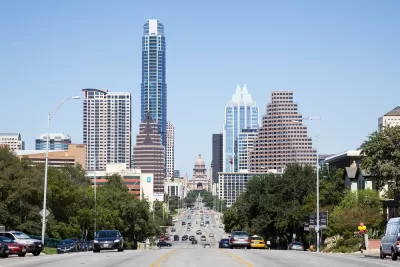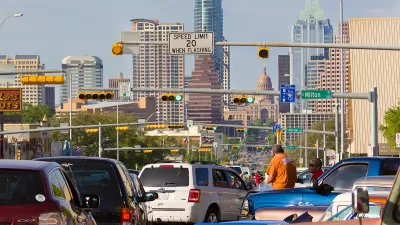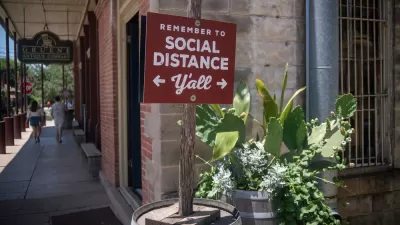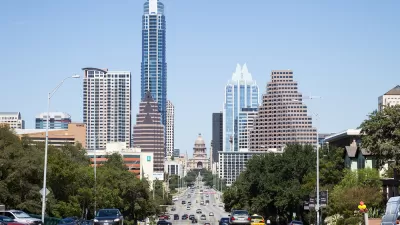Local groups are concerned that voting for the city of Austin's $720 million transportation bond will require a leap of faith.

Audrey McGlinchy reports on the $720 million scheduled for the November ballot in Austin, Texas. The controversy surrounding the bond concerns the ongoing uncertainty about exactly how and where the $720 million would be spent should voters approve the bond.
"Although $482 million of the bond’s total price tag has been set aside for changes to seven main roads, plus studies of two others, city staff has said that fully funding the corridor studies would cost closer to $1.5 billion," according to McGlinchy. "So, with less than a third of that amount in hand should the bond be approved by voters in November, staff and Council would still have to fund the rest piecemeal."
The bond, first announced in May and covered by Planetizen in June, is one of Mayor Steve Adler's signature initiatives. Adler's explanation for the uncertainty surrounding the bond is that a finalized list of corridor plans would cost too much and waste time.
However, Mayor Adler does promise that the bond will have guidance and checks and balances in place. McGlincy explains:
When City Council approved the bond, it also approved a set of guiding goals for staff, including addressing congestion and increasing transit options, such as infrastructure for buses and bikes. These, the mayor said, will be priority when staff decides which portions of Austin’s main roads deserve makeovers. Council will also have to approve each piece of spending with this bond money, meaning there will be a venue for at least some form of public input.
The article also shares the details of the Austin Neighborhoods Council's objections to the lack of detail regarding the bond.
FULL STORY: The leap of faith inherent in voting for the $720 million bond

Maui's Vacation Rental Debate Turns Ugly
Verbal attacks, misinformation campaigns and fistfights plague a high-stakes debate to convert thousands of vacation rentals into long-term housing.

Planetizen Federal Action Tracker
A weekly monitor of how Trump’s orders and actions are impacting planners and planning in America.

In Urban Planning, AI Prompting Could be the New Design Thinking
Creativity has long been key to great urban design. What if we see AI as our new creative partner?

King County Supportive Housing Program Offers Hope for Unhoused Residents
The county is taking a ‘Housing First’ approach that prioritizes getting people into housing, then offering wraparound supportive services.

Researchers Use AI to Get Clearer Picture of US Housing
Analysts are using artificial intelligence to supercharge their research by allowing them to comb through data faster. Though these AI tools can be error prone, they save time and housing researchers are optimistic about the future.

Making Shared Micromobility More Inclusive
Cities and shared mobility system operators can do more to include people with disabilities in planning and operations, per a new report.
Urban Design for Planners 1: Software Tools
This six-course series explores essential urban design concepts using open source software and equips planners with the tools they need to participate fully in the urban design process.
Planning for Universal Design
Learn the tools for implementing Universal Design in planning regulations.
planning NEXT
Appalachian Highlands Housing Partners
Mpact (founded as Rail~Volution)
City of Camden Redevelopment Agency
City of Astoria
City of Portland
City of Laramie





























